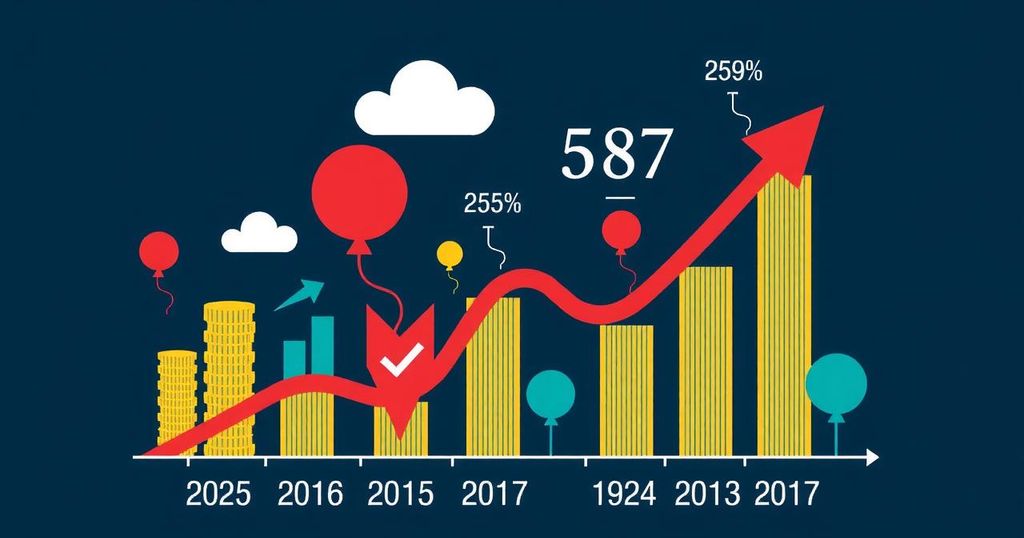A new report illustrates the rising significance of climate change as a risk to businesses, with many executives recognizing its impacts alongside traditional economic uncertainties. The World Economic Forum’s survey highlights extreme weather events as priority concerns for business leaders. Preparation and proactive risk management strategies are vital for resilience, especially given that small businesses are particularly vulnerable to climate effects. Individuals can contribute by adopting sustainable practices to combat pollution.
Recent findings reveal that businesses must increasingly account for the risks associated with climate change. Although executives continue to prioritize economic uncertainties and talent shortages as primary threats, data indicates that climate-related risks are becoming more urgent. The World Economic Forum’s Executive Opinion Survey identifies inflation, poverty, and extreme weather events as significant concerns for business leaders globally. Chris Lay, CEO of Marsh McLennan UK, emphasizes the necessity for businesses to enhance their defenses against not only economic challenges but also the emerging risks posed by new technologies.
The impact of climate change is evident as rising temperatures lead to an increase in the frequency and severity of extreme weather events, significantly affecting the economy and societies. Countries such as Brazil, Germany, Indonesia, and the United States have faced considerable consequences from extreme weather during the past year. While larger corporations have the resources to manage these risks, many small businesses may struggle to survive catastrophic events. Peter Giger, Chief Risk Officer at Zurich Insurance Group, urges organizations to adopt a comprehensive risk management approach that includes non-economic climate impacts to foster resilience and encourage sustainable growth.
Preparation is paramount for business owners who wish to safeguard their enterprises against unexpected climate-related events. As highlighted by Mityne Lewis—who faced flooding at her home and daycare—investing in disaster preparedness is financially prudent; for every dollar spent on preparation, there can be a potential savings of thirteen dollars in damages and recovery costs. On a broader scale, addressing climate-driven risks necessitates a concerted effort to curb pollution stemming from fossil fuel consumption, encouraging individuals to enact sustainable practices in their daily lives.
The article addresses the escalating risks that businesses face due to climate change, citing a shift in priorities among executives. Traditionally, factors such as economic downturns and labor shortages dominated risk assessments. However, recent reports illustrate that climate-related threats are increasingly recognized as crucial considerations. By emphasizing both the immediacy of extreme weather events and the necessity of evolving corporate risk management strategies, the article serves to inform business leaders about the importance of adapting to these changes for long-term sustainability. Understanding the ramifications of climate change is essential for businesses of all sizes, as such events can disrupt operations, impact insurability, and affect overall economic stability. Furthermore, the article highlights the significant role that individual and collective action can play in mitigating these risks.
In conclusion, businesses must adapt to the growing threats posed by climate change while also addressing economic uncertainties. The increasing frequency of extreme weather events necessitates a broader approach to risk management that includes climate impacts. Organizations are encouraged to be proactive in their preparations, recognizing that every effort to reduce pollution and improve resilience contributes to sustainable growth. By embracing these changes, companies can position themselves to navigate future challenges more effectively and safeguard their long-term viability.
Original Source: www.thecooldown.com






